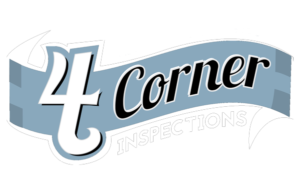
Getting a home inspection is one of the final steps in the process of selling your home. Typically the buyer will get an inspection right before committing to the purchase of your home, and the deal is contingent on the inspection finding very little issues.
Many homeowners choose to get their own inspection before they even begin the selling process, so that they know what to fix and can be transparent with potential buyers. Then it is up to the buyer whether they want to do their own inspection on not – which they typically choose to do.
Either way, there are a few things that you, as the seller, can do to get your home “inspection ready”.
What Will the Home Inspector Check?
Home inspectors look at everything in your home – from the outside to the inside, the crawl space, attic and appliances – they look at every single thing.
They will also inspect water heaters, HVAC systems, electrical, gas and garage doors. This means that you will need to make these things accessible, because if the inspector cannot get to certain items, they cannot determine whether they are working properly or not.
Checklist
Moving and selling a home can be chaotic, so consider taking a few steps to prepare your home for an inspection before the inspector arrives.

1. Clean the House
Cleaning the house is probably something that you would do whenever people are coming over anyway, but it is especially important when preparing for a home inspection.
Home inspectors are human, and if your home is cluttered and dirty, they are more inclined to think that you might not take very good care of your home – even if that isn’t the case. By cleaning, you will create a good first impression that you take care of and maintain your home.
2. Make Sure Access Points are Clear
Inspectors need to get to heaters and other things that are in corners and other crevices, so it is important to make sure that the area in front of them are cleared out. This will make it easier for the inspector and will reduce the risk of things getting broken or misplaced.
Making room to walk around in the crawlspace will also make it easier for your inspector to check for leaks and damage.
3. Make Small Repairs
Making small repairs that you have noticed but haven’t had time to fix will help your inspection go smoothly.
Lightbulbs that are out aren’t a big deal, but to a home inspector it means that there may be an electrical problem. These things can be fixed quickly and will ensure that your home is fully functional.
Little repairs that can be easily fixed:
- Replace lightbulbs that are out
- Relight pilot lights that may be off (furnace, water heater, fireplace)
- Replace air filters
- Replace furnace return filter
- Fix running toilets
- Label electrical boxes
4. Clean the Exterior

The exterior of your home should be cleaned just like the interior. Clearing out gutters and drains from debris will allow the inspector to see that they are in good condition.
Trimming trees is another small task that can make your home look crisp. Bushes and shrubs that are overgrown and blocking power lines or A/C units should be trimmed as well so that inspectors can easily access them.
5. Check Utilities Connections
Home inspectors need to check the functionality of everything – such as the stove, dishwasher and HVAC – so it is important to make sure they are all properly connected to power.
For example, if you have already moved out of the home and it has been on the market for a while, it is likely that you have turned off or limited utilities. However, if you forget to reconnect things, the inspector cannot test correctly.
Oftentimes, inspectors will put in their reports that they were unable to inspect, which means that they will have to come back another time to complete the inspection. This holds up the buying process & may deter the buyer from going through with the purchase of your home.
Final Preparations
When the day of the inspection arrives, there are a few more things to do:
- Leave keys for locked areas or electrical boxes
- Kennel pets that you cannot take with you
- Make sure access ways are clear
- Provide garage passcode
- Take children with you when you leave
- Put away valuables or breakable items
It is typical for the homeowner to leave during an inspection, so be prepared to be away for three hours at least.
Potential buyers and inspectors will be looking for possible problems, so it is best if you as the owner are not present. This will allow them to look at everything thoroughly without worrying about saying the wrong thing, and will make the inspection process go smoothly.






